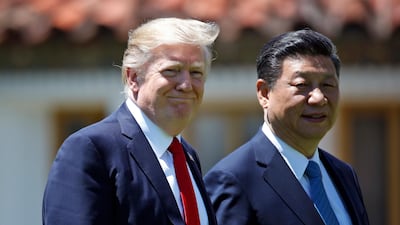The White House has announced that Donald Trump will embark on a five-nation tour of Asian countries as he seeks to reassure America’s allies in the region of his administration’s continuing support for them in the face of North Korea’s growing nuclear ambitions.
The president will travel to Japan, South Korea, China, Vietnam and the Philippines from November 3-14, and Mr Trump also stop over in Hawaii for the first time as president.
“The president's engagements will strengthen the international resolve to confront the North Korean threat and ensure the complete, verifiable, and irreversible denuclearization of the Korean peninsula.,” the White House said in a statement.
Trump will also use the trip to further his trade agenda at two major economic gatherings in the region: the Asia-Pacific Economic Cooperation (APEC) summit and the Association of Southeast Asian Nations (ASEAN) summit.
“[The president] will discuss the importance of a free and open Indo-Pacific region to America's prosperity and security. He will also emphasize the importance of fair and reciprocal economic ties with America's trade partners,” the statement continued.
Trump has taken a more protectionist stance on trade than his predecessor, Barack Obama. He has threatened to impose major tariffs against China and pulled the U.S. out of the 12-nation Trans-Pacific Partnership trade agreement.
There was movement elsewhere in the months-old nuclear missile crisis, as the Russian Foreign ministry said on Friday that Moscow was prepared to work with Pyongyang to try to find a peaceful resolution.
The comments came in a statement issued by the ministry after a meeting between Russian diplomat Oleg Burmistrov and Choe Son-hui, director-general of the North American department of North Korea’s foreign ministry.
_______________
Read more:
Security experts examine implications of a North Korea conflict
_______________
Choe also met with Russian Deputy Foreign Minister Igor Morgulov, the ministry said.
“The Russian side confirmed its readiness to combine efforts in the interests of finding ways to solve the problems in the region by peaceful, political and diplomatic means,” it said.

